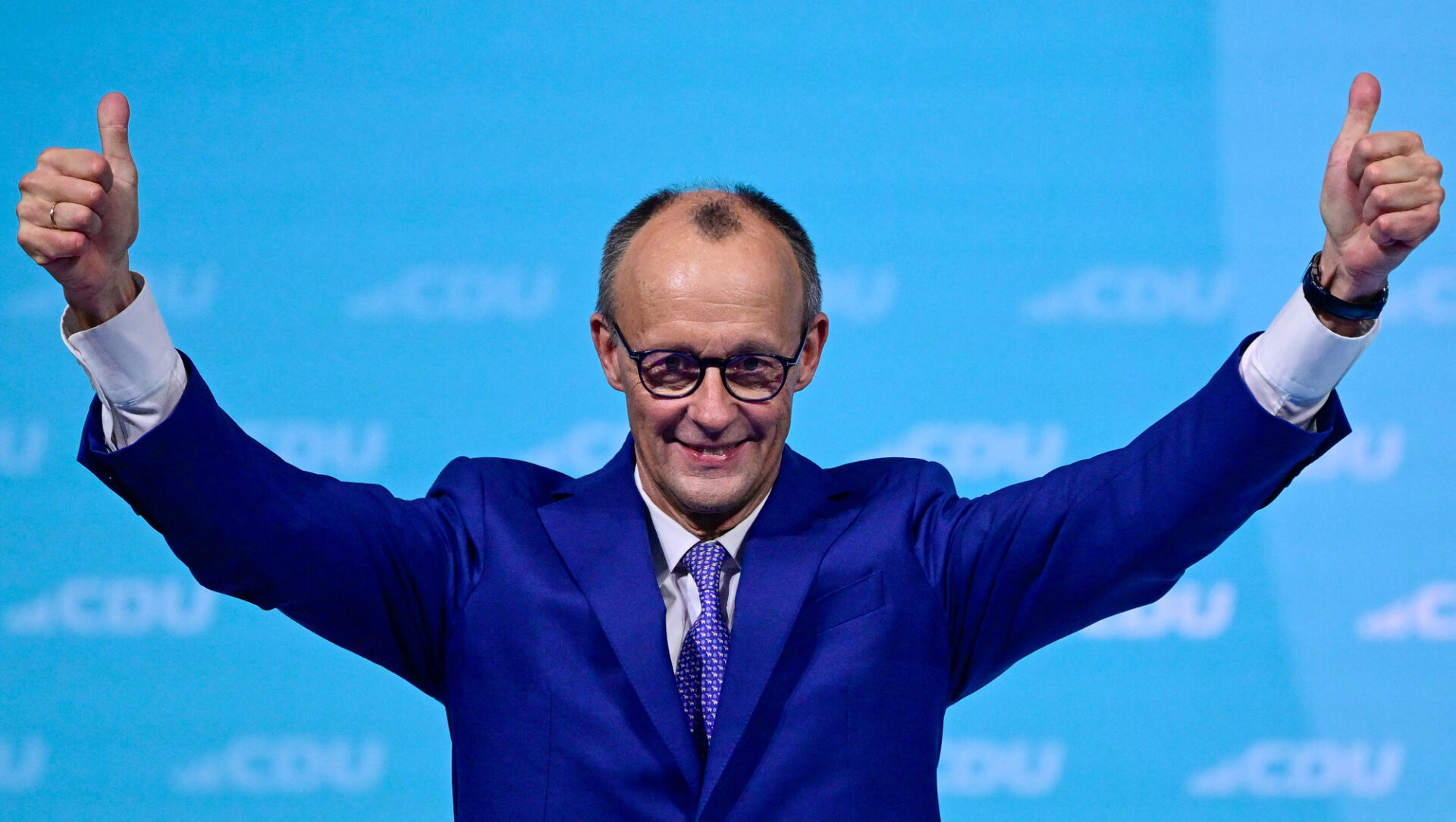Well, that didn’t take long. Peace negotiations over an end to the war in Ukraine are barely underway, and senior German politicians are already calling for their country to resume its ties to Russia.
The next German government is set to contain fewer people who have a problem with that, and the lure of a return to cheap energy is great. Is Germany on the brink of reverting to its pre-war relationship with Moscow?
Michael Kretschmer, a deputy chairman of Friedrich Merz’s centre-right Christian Democrats (CDU), is just the latest politician to moot the idea of an end to sanctions. Arguing that European sanctions against Russia are “completely out of date”, and out of sync with “what the Americans are doing”, he has demanded “constant discussion over which of the sanctions are perhaps more to our detriment than they have an impact in Russia”.
Kretschmer is not the only one to voice such views now. CDU MP Thomas Bareiß floated the idea of restoring energy deliveries through the Nord Stream pipelines once the situation in Ukraine settles. “Of course, gas can flow again,” he argued, and “relationships will normalise.” His party colleague Jan Heinisch agreed in an interview with Politico earlier this month that Germany “should also be able to discuss purchasing Russian gas again”.
This is not a line of argument that comes solely out of the CDU. The Social Democrats (SPD) of Chancellor Olaf Scholz, who are likely to be the Christian Democrats’ coalition partner, also have many supporters of a resumption of ties with Russia. Dietmar Woidke, head of the state of Brandenburg, has said that he’d be happy “if we could return to normal economic relations with Russia”. This is hardly surprising as his state contains the Schwedt oil refinery, which was once majority Russian-owned and provided most of the fuel used in Berlin. It’s a major employer in the region.
In the past, Merz has presented himself as a hawkish supporter of Ukraine. Before the election earlier this year, he’d promised to send Kyiv long-range Taurus missiles, something that Scholz had refused to do. He’d also criticised the Chancellor for his telephone call with Russian President Vladimir Putin last year. A huge spending package he’s just pushed through the German parliament was supposed to boost the country’s deterrence value, specifically against the threat from Russia. Moscow seems to believe Merz, with Foreign Minister Sergey Lavrov calling him “pretty aggressive”.
While Merz may not belong to the pro-Russia camp of his party, it’s telling that he has so far made little attempt to silence it either. On the contrary, many of its most vocal proponents are sitting at the negotiating table which hammers out the conditions for the next coalition. Kretschmer is in the senior negotiating group alongside Merz. Bareiß sits in a subgroup on infrastructure (much of which Germany had to wrestle out of Russian control when the war began), and Heinisch is a member of the all-important energy group.
Russian energy has been so central to the German economic model that it has also seeped into the country’s political DNA. Merz won’t be able to eliminate this tendency in the short term, but he must ensure that Berlin doesn’t return to business as usual with Moscow the moment there is an opportunity. Germany needs to diversify its energy sources to keep itself independent of the whims of foreign powers.
Unfortunately, there is little evidence so far that Merz is exercising any leadership in this matter. Negotiations over the exact policies of the next coalition are not yet complete, but the results so far do not indicate a coherent strategy to solve Germany’s energy crisis. Before the war, Russia supplied a third of Germany’s oil, half of its coal imports and over half of its gas. With the exception of an extension of the country’s exit from coal from 2030 to 2038, there appears to be no plan as to how to replace the other fossil fuel imports. The CDU would like to bring nuclear energy back, but the SPD would not.
With the Greens — who were the most hawkish about Moscow while in government — now in opposition, Germany’s next ruling coalition may well find that its lowest common denominator is a return to Russian fossil fuels.











Join the discussion
Join like minded readers that support our journalism by becoming a paid subscriber
To join the discussion in the comments, become a paid subscriber.
Join like minded readers that support our journalism, read unlimited articles and enjoy other subscriber-only benefits.
Subscribe